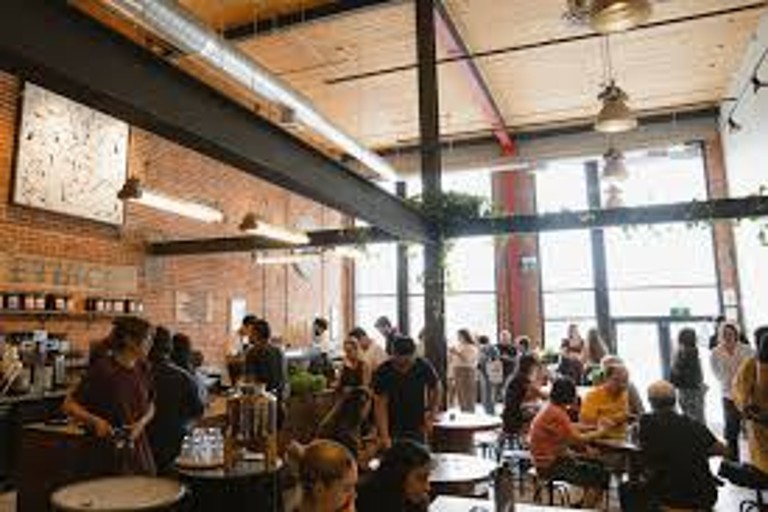Food & Flavour
Toronto’s Coffee Roasters Turn to Sustainable Sourcing This Season
As colder weather sets in, local roasters are spotlighting ethically sourced beans and community-driven stories behind each cup — from small farms in Guatemala to independent cafés in downtown Toronto.
By Olivia Chan • 2025-10-26

In Toronto’s growing coffee culture, sustainability is no longer just a buzzword — it’s becoming the standard. Across the city, independent roasters are shifting their focus toward traceable sourcing and fair-trade relationships, ensuring that every cup poured in the downtown core connects directly back to the farmers who grew the beans.
For years, the city’s cafés thrived on novelty — new brewing gadgets, single-origin blends, and latte art competitions. But this autumn, a different kind of innovation is taking hold. “People want to know the story behind their coffee,” says Erin Wallace, owner of Junction Roasters. “Transparency and ethical partnerships are what keep us grounded.”
Wallace’s café, nestled in a repurposed brick warehouse, now displays profiles of smallholder farms from Guatemala, Ethiopia, and Colombia. Each bag of beans includes the name of the farmer, elevation, and harvest notes. “It’s not marketing,” she insists. “It’s about respect — and about letting customers see the real hands behind the roast.”
Across town, other roasters echo that sentiment. Balzac’s Coffee Roasters recently announced its new “Grounded” initiative, which sources beans exclusively from cooperatives that reinvest profits into education and clean water projects. “It’s about circular impact,” says company director Marco Fillion. “We can’t separate the pleasure of coffee from the people who make it possible.”
The shift toward sustainability has also changed how cafés operate on the customer side. Several shops have introduced discounts for reusable cups, compostable packaging, and even carbon offsets for wholesale deliveries. “It’s small changes that add up,” says Wallace. “Our customers hold us accountable, and that’s a good thing.”
Toronto’s young professionals — often working remotely from cafés — are helping drive the movement. “They want authenticity,” says food writer Hannah McDonald. “Buying a latte becomes a vote for values. People are realizing that sustainability isn’t a luxury — it’s part of how modern cities should function.”
Despite inflation and supply chain challenges, many café owners remain committed to fair pricing for farmers. “We pay more per pound, and it’s worth it,” says Fillion. “Consumers are beginning to understand that the true cost of coffee isn’t measured by convenience, but by community.”
The city’s café scene now blends activism with artistry. Baristas host weekly tasting sessions to teach customers about flavor profiles and farming regions, turning casual coffee drinkers into conscious consumers. The result is a subtle but powerful cultural shift — one that ties morning rituals to global awareness.
Beyond ethics, the movement is also influencing taste. With beans roasted more gently and purchased fresh from harvest, cafés are finding new expressions in familiar flavors. “A Guatemalan roast now carries honey and citrus notes that weren’t there before,” says Wallace. “It’s not just better for the planet — it’s better in the cup.”
As winter approaches, Toronto’s cafés glow with the warmth of freshly brewed purpose. Steam curls over cups, conversations hum softly, and behind every sip lies a growing network of fairness, resilience, and shared appreciation — proof that sustainability, like coffee, is best when it’s made with care.